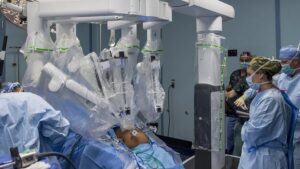
In critical care units (CCUs), patients are often vulnerable to a variety of health issues due to their severe illnesses, surgeries, or weakened immune systems. Keeping up good oral hygiene is one care component that is commonly disregarded. Yet, oral health plays a crucial role in the overall well-being of critically ill patients, as poor oral hygiene can lead to serious complications such as infections, pneumonia, and poor nutrition. Oral care swabs, such as sponges for mouth or mouth swabs for elderly, are essential tools in critical care settings to support oral hygiene and prevent these complications. In this article, we will explore how oral care swabs contribute to oral health in critical care units and why they are indispensable in improving patient outcomes.
What Are Oral Care Swabs?
Small, throwaway instruments called oral care swabs are used to clean teeth, gums, and the mouth. They typically feature a soft, absorbent tip made from a sponge or foam material attached to a stick. These swabs are ideal for patients who are unable to use traditional toothbrushes due to limited mobility, unconsciousness, or physical debilitation. Sponge on stick for mouth are often used in hospitals, particularly in critical care units, where patients may be intubated, sedated, or unable to perform basic hygiene tasks on their own. These swabs can be moistened with mouthwash or water to remove bacteria, food particles, and other debris from the mouth, keeping the oral cavity clean and free of harmful microorganisms.
Preventing Oral Infections in Critical Care Units
Patients in critical care units are at a higher risk for infections due to their compromised immune systems, extended hospital stays, and invasive medical procedures. Poor oral hygiene in such settings can lead to the buildup of bacteria in the mouth, which can then spread to other parts of the body, leading to infections such as ventilator-associated pneumonia (VAP) or sepsis. Hazardous bacteria thrive in the mouth, especially in patients who are immobilized or intubated.
Using disposable sponge toothbrush patients or other critically ill individuals helps to minimize bacterial buildup in the mouth. By regularly cleaning the teeth, gums, tongue, and the roof of the mouth, caregivers can remove plaque and bacteria that contribute to infections. This simple step plays a critical role in reducing the likelihood of systemic infections that can complicate recovery and increase the risk of morbidity and mortality. Sponges for mouth are especially useful in this regard because they are gentle, easy to use, and effective at cleaning hard-to-reach areas in the mouth.
Reducing the Risk of Aspiration Pneumonia
Aspiration pneumonia is a common and serious complication for critically ill patients, particularly those who are intubated or unable to swallow properly. It occurs when food, liquid, or saliva is inhaled into the lungs, often containing bacteria from the mouth. This can seriously impede a patient’s recuperation by causing lung inflammation and infection.
Oral care swabs are critical in preventing aspiration pneumonia by keeping the mouth clean and free from excess saliva, food particles, and bacteria. Sponges for mouth are used to gently remove debris and prevent the accumulation of fluids in the oral cavity that could be aspirated. By using these swabs regularly, especially in patients with feeding tubes or those who are unconscious, healthcare providers can reduce the risk of aspiration and the associated complications.
Maintaining Comfort and Oral Hydration
In critical care units, many patients suffer from dry mouth (xerostomia), which can result from medications, mechanical ventilation, or dehydration. Dry mouth can cause discomfort, increase the risk of tooth decay, and impair the ability to speak or swallow.Dry mouth is especially upsetting for older patients or those with cognitive difficulties.
Mouth swabs for elderly patients are a simple solution to this issue. These swabs can be moistened with water or mouthwash, providing hydration to the mouth and relieving the discomfort associated with dryness. They can also help remove any sticky residue or mucus that can accumulate in the mouth, making the patient feel fresher and more comfortable. The use of sponges for mouth ensures that patients receive the oral hydration they need without the need for invasive procedures or complicated techniques.
Supporting Overall Patient Comfort and Hygiene
In addition to preventing infections and aspiration pneumonia, oral care swabs contribute to the overall comfort and dignity of patients in critical care units. A clean mouth is not only important for preventing disease, but it also improves a patient’s comfort, helps them feel more refreshed, and reduces the distress caused by a dirty or dry mouth. This is especially important in long-term care situations, where patients may spend weeks or even months in critical care settings.
Regular use of sponges for mouth can also make it easier for healthcare providers to monitor the patient’s oral health. By keeping the mouth clean and regularly checking for any signs of sores, gum inflammation, or infections, caregivers can catch oral health issues early and take appropriate action to address them.
Best Practices for Using Oral Care Swabs in Critical Care Units
Choose the Right Type of Swab: It is important to use oral care swabs that are specifically designed for hospital settings. Look for sponges for mouth that are soft, non-abrasive, and gentle on delicate tissues. Choose swabs that are pre-moistened with mouthwash or water for ease of use and comfort.
Clean the Entire Oral Cavity: Focus on cleaning all areas of the mouth, including the gums, tongue, teeth, and inside of the cheeks. These areas can accumulate bacteria and plaque, which contribute to oral infections.Focus on the difficult-to-reach places beneath the tongue and at the back of the mouth.
Keep an eye on your dental health by often looking for symptoms like redness, sores, or bleeding that could indicate an infection or discomfort. More serious issues can be avoided with early action.
Hydrate the Mouth: Use oral care swabs to moisten the mouth, particularly for patients with dry mouth. This can lessen the chance of tooth decay and gum disease by preventing discomfort and preserving oral moisture.
Follow Infection Control Procedures: Always dispose of oral care swabs after each use and follow strict hygiene protocols to prevent cross-contamination between patients.
Conclusion
In critical care units, maintaining oral health is an often overlooked but essential part of patient care. Oral care swabs, such as sponges for mouth, play a key role in preventing infections, reducing the risk of aspiration pneumonia, and maintaining overall patient comfort. By incorporating these swabs into the daily care routine, healthcare providers can support the oral hygiene of critically ill patients, improve their comfort, and contribute to better overall health outcomes. Whether in a hospital or long-term care setting, the use of mouth swabs for elderly patients and others with limited mobility or consciousness is a simple yet effective way to ensure that oral health does not take a backseat during critical care.






